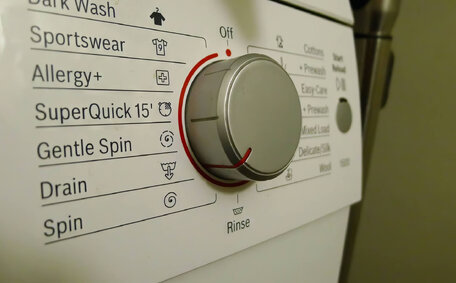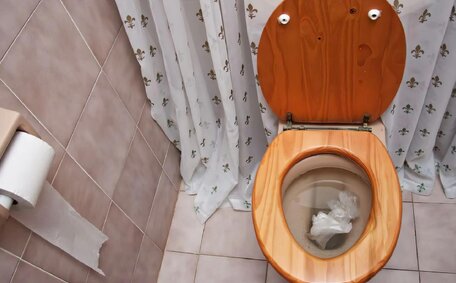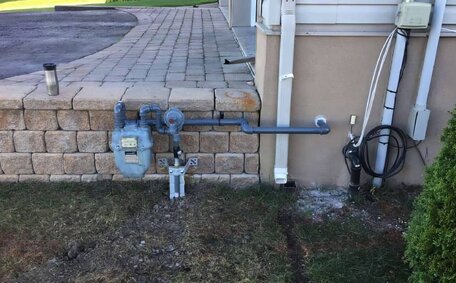Introduction to Blocked Drains in Rental Properties
Blocked drains are a common challenge in rental properties, impacting both tenants and landlords alike.
In a rental property, the issue of responsibility is not always straightforward when it comes to dealing with blocked drains. Factors like the cause of the blockage, negligence, property boundaries, and lease agreements all play a role.
As a result, this often leads to uncertainty regarding who is responsible for organising drain repairs.
This guide clarifies accountability in various blocked drain scenarios. We’ll outline when landlords are obliged to cover maintenance costs, and when tenants may need to foot the bill. Understanding who is responsible, engaging specialists promptly, and taking preventative steps can minimise the hassles of a Sydney blocked drain throughout the city.
Defining Maintenance Obligations for Landlords and Tenants
Leases dictate the core responsibilities of property owners in regards to property maintenance and the speedy resolution of issues that can cause blocked drains. It’s widely accepted that landlords must maintain rental properties in reasonable repair, including addressing faulty plumbing and blocked drains in Sydney. The Residential Tenancies Act stipulates minimum housing standards.
Tenants have a duty to take care of the property and address blocked drains during their stay. This means preventing intentional, negligent or reckless damage. Promptly reporting a blocked drain enables the landlord to address the issue before it escalates.
Liability for a blocked sewer, in particular, hinges on factors such as:
- Cause - If tenants poured fats/solids down sinks causing clogs
- Location - Inside or outside the property boundary
- Severity - Small vs catastrophic collapses needing pipe relining
Clear communication with the landlord, reviewing the lease, and consulting trade specialists when necessary will determine who is responsible.
Determining Liability Based on Cause of Blockage
The primary cause of a blocked drain is vital in assigning liability. Furthermore, tenants frequently cause blockages by flushing unsuitable items like wet wipes or sanitary products down toilets.
If a tenant has been negligent, responsible any resulting accumulations in pipes, they are generally obligated to pay for repairs. Tenants may also bear responsibility if a blockage was caused blocked by unchecked plant roots from their own garden beds or indoor pot plants.
Issues like tree roots intruding from land where council can intervene, collapsed pipes due to wear, or sinkholes from stormwater drainage issues typically fall into the property owner’s domain. In strata complexes, faults within internal wastewater infrastructure necessitating pipe relining could warrant the body corporate or landlord stepping in.
Transparent communication is imperative for resolving disputes about blockage locations and related obligations.
Tenant Negligence and Accountability
Tenants may face liability for blocked drain repairs if the blockage has been caused by their actions due to negligence or improper use of sinks and drains.
Under Fair Trading guidelines, tenants intentionally pouring fats or solids down drains can create obstructions as materials build up. Flushing unsuitable items like wipes, sanitary products, or hair down the toilet also commonly results in clogs.
If a tenant has demonstrably shown neglect, recklessness, or intentional misuse of the property’s wastewater infrastructure leading to a blocked drain, the landlord may deem them accountable. In such cases, the tenant is usually responsible for the necessary repair costs to clear the blockage. Consequences can be outlined in one’s lease agreement.
To avoid accusations of culpability, tenants should always take care to dispose of waste properly and limit what enters sinks and toilets. No matter the situation, acting swiftly to call your landlord when suspecting drain issues is advisable, as severe blockages left untreated can worsen into collapsed pipes or water damage.
Following the plumbing infrastructure’s intended use can prevent most instances of sewer lines becoming blocked.
Navigating Repairs for Shared and Public Drains
Blockages affecting shared or public drains can require coordinated efforts between property owners and other parties to address. These intricate pipe networks, often the source of blocked drains, have varied access points, ownership, and maintenance responsibilities, differing from private drains.
In a strata community, the owners’ corporation typically organises specialist drain repairs for blockages in shared drains as part of their management of common property. For issues with private wastewater systems, the first step is to contact Sydney Water.
Efficient resolution of blocked drains requires immediate collaboration to establish responsibilities and ensure quick access. Specialist drain plumbers can provide guidance in mapping pipe layouts across properties and strategically clearing clogs.
Despite potential complexities, prompt professional consultation and clear communication can lead to efficient resolution of shared drain blockages before severe overflows or pipe damage ensues.
Understanding Your Lease Agreement Terms
It’s critical for both landlords and tenants to thoroughly review their lease agreement to understand responsibilities regarding maintenance and repairs, especially for plumbing issues like blocked drains. The agreement details obligations for damage prevention, immediate fault reporting, repair access coordination, and cost-bearing.
Critical elements to consider are:
- The landlord’s duty includes maintaining the entire drainage system in good working order, addressing any wear and tear.
- Scenarios where tenants may cover repair costs if negligent e.g. placing fat down sinks.
- Emergency access clauses enabling urgent repairs.
- Dispute resolution procedures if liability is unclear.
Tenants must ascertain:
- Who to contact when blocked drains occur.
- Response timeframes outlined for landlords arranging repairs.
- Any pre-existing plumbing faults documented.
Being familiar with lease terms in advance provides clarity when issues with blocked drains arise. In emergencies, specialist drain plumbers can navigate complex agreements to facilitate urgent unblocking.
Hiring a Professional for Severe Drain Issues
For substantial issues causing major backups or flooding, hiring a qualified drain plumber is strongly advised. Licenced drain professionals have the expertise to accurately diagnose issues and implement appropriate repairs based on drain layouts and pipe materials.
Indicators that necessitate professional help for a blocked drain include:
- Total water drainage failure despite attempts using plungers or drain cleaner chemicals
- Foul sewage odours pervading your home from sink/toilet overflows
- Backed-up water flooding bathrooms whenever fixtures are used
- Large sinkholes forming around your exterior drainage pits
Only licensed plumbers are legally permitted to fix blocked drains that necessitate pipe inspections with cameras and might involve hydrojet drain cleaning. More complex issues, such as blocked drains sewer, pipe collapses, or root invasions will likely require trenchless relining or drain replacement.
When selecting a plumbing company, check licencing, experience and reviews. Selecting an established business that provides emergency services and clear quotes is ideal. Make sure they specialise in drain repairs, have necessary equipment for diagnosis, and provide warranty on parts/labour.
By proactively seeking plumbing services from reputable drain professionals for sizable clogged drains, landlords and tenants alike can ensure issues are rectified correctly the first time. Attempting DIY repairs for substantial clogs risks exacerbating damages.
Preventing Blockages and Resolving Conflicts
There are several key steps tenants and landlords can take to help prevent blocked drains:
- Avoid pouring fats, oil, or food scraps down the drain to prevent the buildup of blockages.
- Use drain strainers in your kitchen sink to catch food particles and empty regularly
- Only flush toilet paper and human waste down the toilet – no wipes, sanitary items or other objects
- Use enzyme drain cleaners monthly to break down grease and keep pipes clear
- Install protective wire mesh over drain pipes to stop large debris from falling in
Landlords can preempt blockages with regular professional drain inspections that identify issues early on. Tenants should report any signs blocked drains immediately to prevent further complications.
If conflicts arise regarding liability for blocked drains, aim to resolve issues cooperatively through open communication guided by one’s lease terms. It’s important to present facts objectively without casting blame. A professional plumbing inspection assessing the likely cause can provide an objective opinion to inform negotiations.
Landlords who are proactive, responsive, and transparent can ensure healthy pipes, while tenants avoid misuse. Should significant blockages arise, specialists can employ camera inspections to fairly determine the source of the fault. When liability is mutual, cost sharing is also reasonable.






